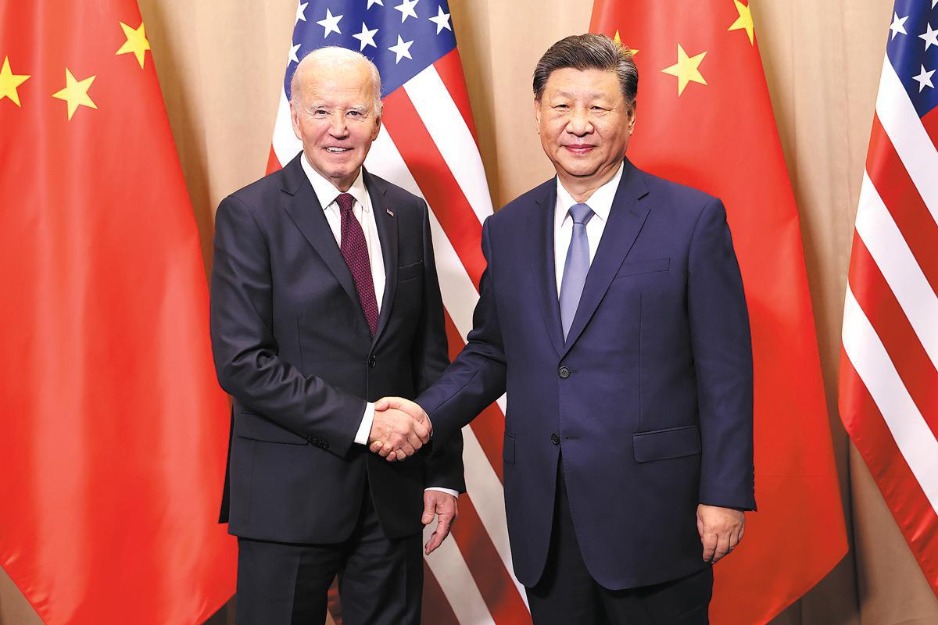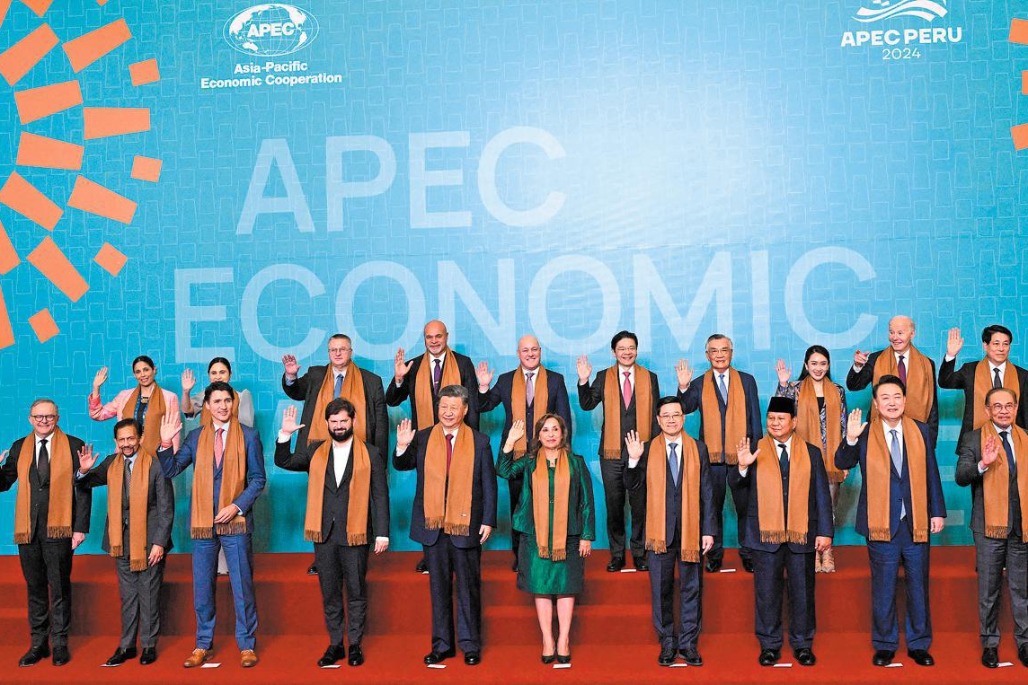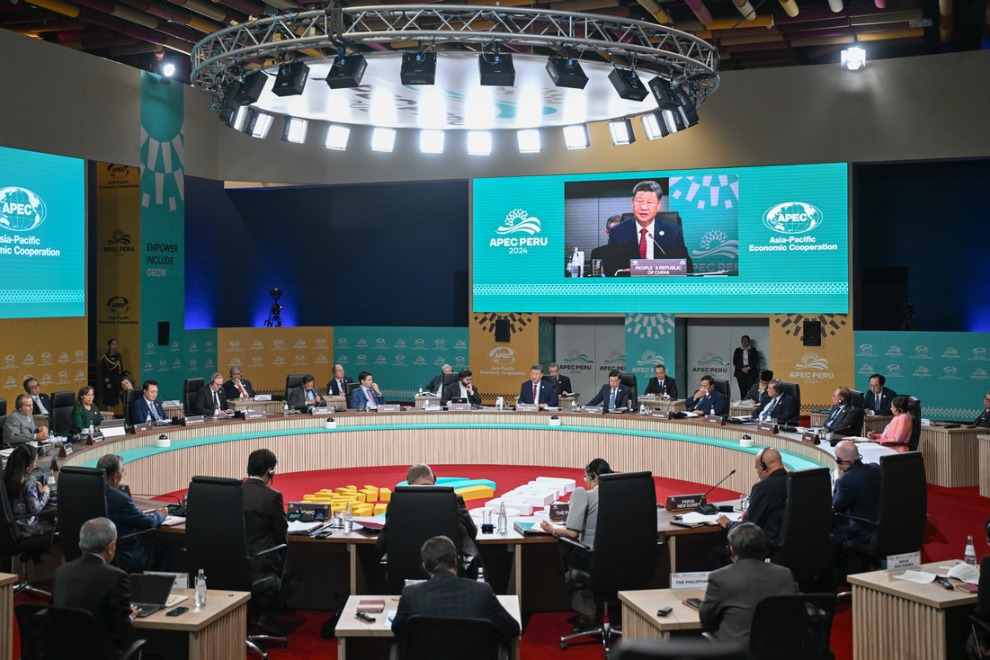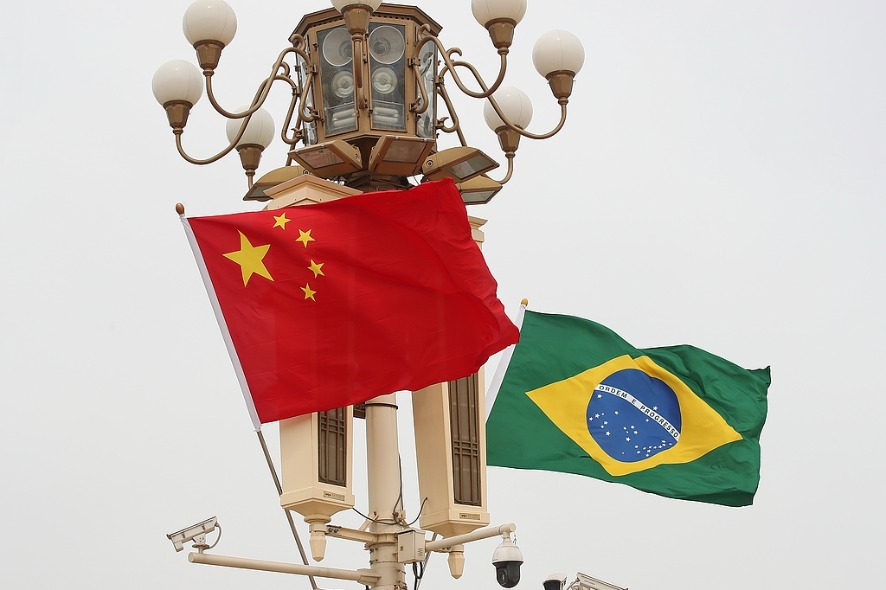Brazil, China pursue sustainable growth


With Brazil and China celebrating half a century of diplomatic relations and Rio de Janeiro hosting the G20 Summit on Monday-Tuesday, this is the right time to reflect on the challenges and opportunities the 21st century presents to the two countries. The Brazil-China partnership, which has become a symbol of mutual success and development, has the potential to transcend borders and drive economic development throughout Latin America. The collaboration between Brazil and China, which spans various sectors and fosters innovation, is a driving force for sustainable and inclusive development in the region.
Over the past decades, the Sino-Brazilian partnership has become one of the most important strategic ones in the world. Initially driven by economic and commercial interests in areas such as industry, energy, agriculture and technology, the partnership has yielded benefits that extend beyond national borders. The partnership has been further strengthened by investments in infrastructure, sustainable development and innovation-oriented high-tech projects — key components in addressing global challenges such as climate change. As such, the transition to clean energy has become crucial for future development, particularly for developing countries in Latin America.
Trade between Brazil and China has grown exponentially over the past two decades. China is currently Brazil's largest trading partner, and Brazil plays a crucial role as a supplier of essential commodities such as soybean, iron ore and oil to China. In 2023, trade between the two countries reached new highs, thanks to China's increasing demand for Brazilian agricultural products, particularly soybean, in which Brazil holds a competitive edge over the United States and Argentina.
However, trade between the two countries is no longer limited to commodities. According to a Brazil-China Business Council (CEBC) report, Chinese investments in Brazil are increasingly focused on the high-tech sector and sustainable industries such as electric vehicles, solar photovoltaic panels and wind energy. This diversification of bilateral trade helps both countries adapt to the demands of a rapidly changing global economy, and reduces their reliance on traditional sectors.
The climate crisis has become a challenge that needs to be immediately addressed, especially given the increasing frequency of extreme weather events such as floods and heat waves. To address this challenge, the transition to clean energy is a priority for countries and a pillar of Sino-Brazilian cooperation. China, the world's largest investor in renewable energy, sees Brazil as a strategic partner to advance its global sustainability goals. And Brazil's mostly clean energy matrix offers a solid foundation for new renewable energy projects.
Last year, 72 percent of Chinese investments in Brazil was in green energy projects, such as wind and solar power generation, according to the CEBC report. Committed to achieving carbon neutrality before 2060, China seeks partners that share this vision, and Brazil, with its abundant natural resources, stands out as a key destination for such investment. Chinese companies such as the State Grid and the China Three Gorges Brazil, a subsidiary of China Three Gorges Corporation, have been investing in Brazil's hydropower sector since 2010 while also expanding into solar and wind energy.
Agriculture is another key pillar of the Brazil-China relationship, with Brazil consolidating its position as the top supplier of corn and soybean to China, the world's largest importer of farm products. In the first two months of 2024, Brazil supplied 4.1 million tons of the total 6.19 million tons of corn imported by China during that period. This trade is vital for both countries, as it ensures China's food security while benefiting Brazil's economy.
Chinese companies have also invested in agricultural projects in Brazil, which hopefully will make production more efficient and sustainable. Additionally, China is highly interested in low-carbon agricultural technologies, which reflects the shift of the global development paradigm toward sustainable food production. Brazil, as a global leader in precision agriculture and green technologies, is well-positioned to expand this collaboration to benefit both economies, and contribute to global food security.
Investment in infrastructure is central to the Brazil-China relationship, reflecting both sides' commitment to sustainable development. According to the CEBC, between 2007 and 2023, Chinese companies invested $73.3 billion in Brazil across 264 projects. One notable example is the State Grid, which won the largest Brazilian government auction in 2023 and will invest 18 billion Brazilian reais ($3.09 billion) to build an ultra-high voltage transmission line connecting Maranh?o to Goiás to supply renewable energy from northeastern Brazil.
In the transportation sector, the China Railway Construction Corporation has secured major projects, including the construction of the S?o Paulo-Campinas Intercity Train and an inter-metropolitan train connecting Jundiaí with Campinas, as well as the 7-Rubi line, which is part of S?o Paulo's metropolitan train network. These projects are critical to the modernization of Brazil's transportation infrastructure and sustainable mobility.
Brazil has also expressed its interest in deepening this cooperation by participating in the China-proposed Belt and Road Initiative, a possibility it is still exploring. The two countries may discuss the issue in detail after the G20 Summit.
As China continues its economic expansion and Brazil seeks to diversify its production and make its economic sectors more sustainable, the cooperation between the two economies is growing stronger. Infrastructure, clean energy, low-carbon agriculture and foreign trade remain at the core of the Sino-Brazilian partnership.
Most important, the fact that both countries are committed to tackling the climate crisis through green investments and technological innovation offers a promising path for the future. While China is likely to consolidate its position as the leading foreign investor in Brazil's strategic and sustainable sectors, Brazil will continue playing a key role as an economic partner and a preferred destination for Chinese investments, particularly in the energy transition-related sectors. And their collaboration has the potential to reshape the economic future of not only China and Brazil but all Latin American countries.
The views don't necessarily represent those of China Daily.
The author is attorney general of Rio de Janeiro State University and president of the China-Brazil Friendship Association.
If you have a specific expertise, or would like to share your thought about our stories, then send us your writings at opinion@chinadaily.com.cn, and comment@chinadaily.com.cn.































